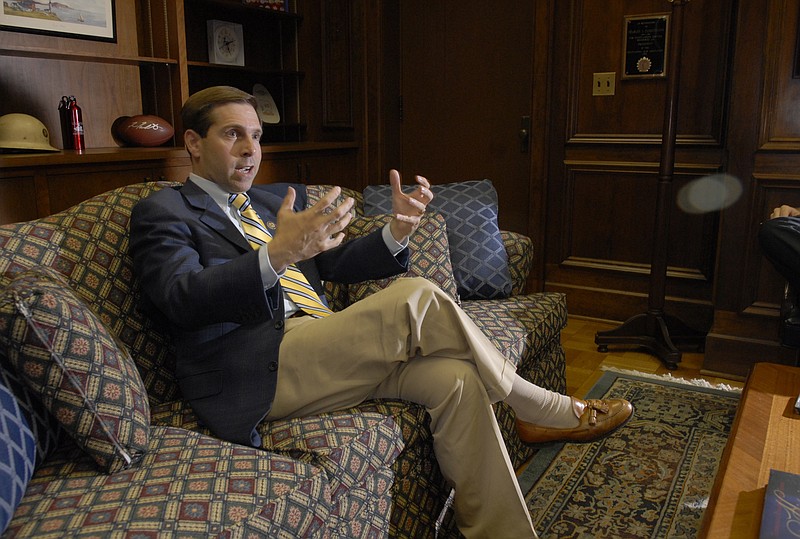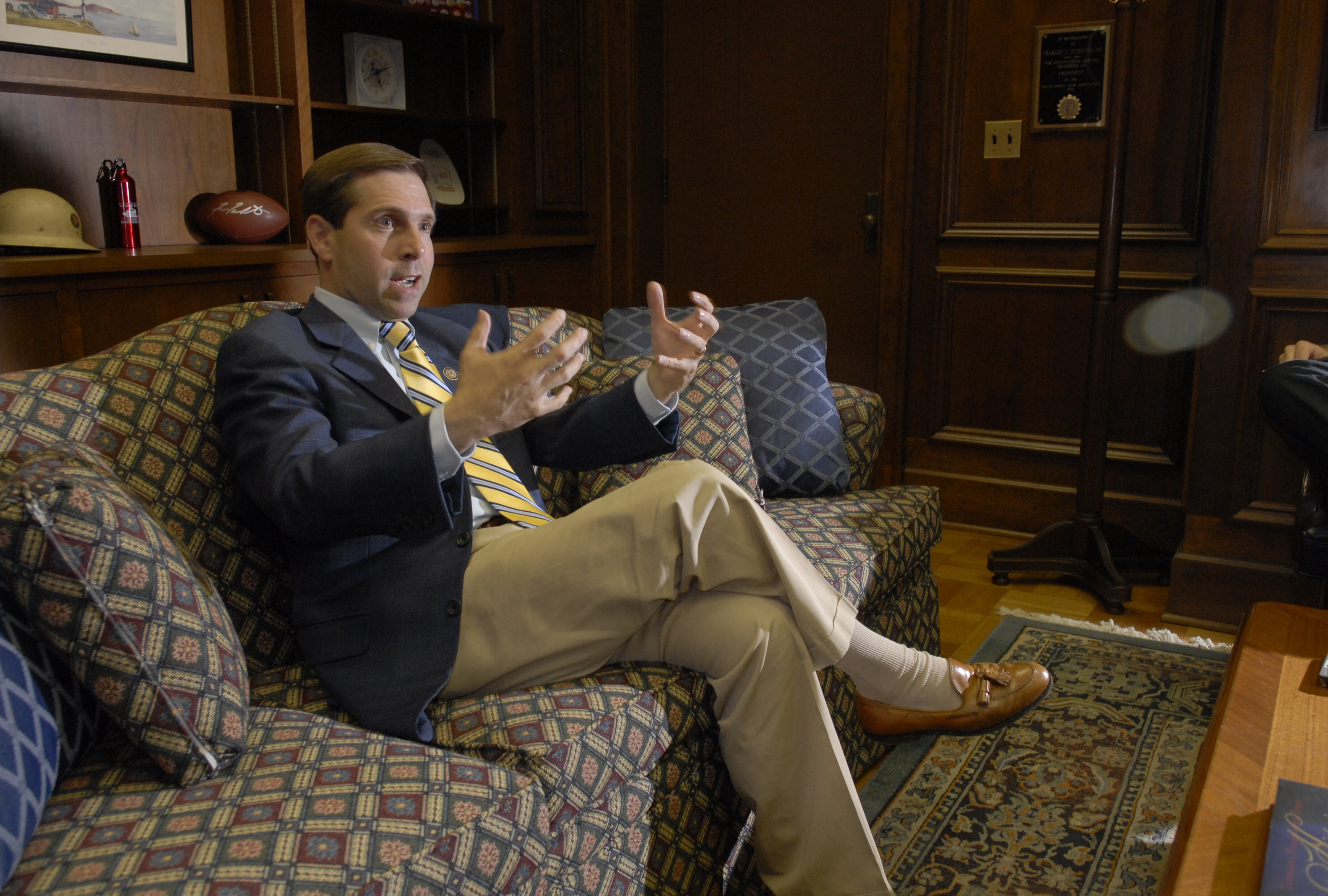U.S. Rep. Chuck Fleischmann said he enjoyed a "tremendous" first year as a congressman, but admitted he's surprised to be facing the son of his predecessor this year.
Last week, Fleischmann's staff sent a 36-page year-end packet to reporters, seeking to land year-in-review coverage and portraying their boss as busy and undeterred by an unusual primary challenge.
But in an interview, Fleischmann said his two-year term forces him to consider politics and re-election -- he first heard Weston Wamp's name a year ago -- and the 36-page packet shows successes as well as failures during the congressman's first year.
Along with 11 other members of Congress, Fleischmann, R-Tenn., never missed a vote. But many of the "key votes" his staff showcased, including "repealing ObamaCare" and revoking funding for National Public Radio, only passed the House before stalling in the Democratic-controlled Senate and never becoming law.
"I don't think it's disingenuous to say we passed those into law," he said. He blamed a "left of liberal" administration and Senate for never considering House proposals, later referring to President Barack Obama as "dictatorial."
Individually, the attorney from Ooltewah attracted numerous co-sponsors for legislation he introduced, but his three bills did not reach the House floor. (He's not alone. Out of Tennessee's four freshman lawmakers, only U.S. Rep. Diane Black, of Gallatin, had a noncommemorative bill make it that far.)
Dr. Bruce Oppenheimer, a political science professor at Vanderbilt University, said it's "very rare [freshman lawmakers] propose any bills that get traction," adding that it takes time to learn the ways of Washington and Congress.
But Fleischmann remained hopeful for this year, saying his bills on eliminating capital gains taxes for two years and shuttering a "wasteful" federal weatherization program would spur similar ideas and someday result in actual passed legislation.
"That's the best part about the process. It gets people thinking," he said. "It's in a format that is not dictatorial, not exactly 'my way or the highway' -- President Obama's model."
Bill Taylor, a Democrat challenging Fleischmann, said his opponent's legislation had more to do with the whims of House Speaker John Boehner, who headlined a Chattanooga fundraiser for Fleischmann in October.
"He does whatever the speaker tells him to do, and I don't think that represents the 3rd District well," Taylor said.
Some members of Congress live in their offices, but Fleischmann chose a basement apartment on Capitol Hill.
Twelve months later, passing the Supreme Court and Library of Congress on his five-minute walk to the Capitol still brings "a wonderful wow factor," he said.
"Sometimes it's just me and my guest and the [Capitol] rotunda -- they've got the statues in there and paintings," he said. "It's a tremendous feeling."
Meeting constituents is the most enjoyable part of the job, Fleischmann said, and the packet documents how many town halls (14) and district meetings (300) he held last year.
"Gee whiz, you see Congress at a 9 percent approval rating, you'd think people would be just furious," Fleischmann said. "Absolutely not."
Fleischmann said politics entered his mind a year ago, when he first heard about Weston Wamp, the 24-year-old son of eight-term former Rep. Zach Wamp.
"I heard in January there would be challenges to me," Fleischmann said. "I heard his name."
The congressman's spokesman, Jordan Powell, went further.
"Before Chuck was sworn in, he heard rumors that Weston might run against him in 2012, but that's all he thought they were -- rumors," Powell wrote in an email. "Nothing more."
Weston Wamp said supporters began nudging him toward a congressional run "in the first couple months of [2011]."
"If he heard rumors about it, apparently people were talking about it," Wamp said.
Fleischmann's staff, usually reluctant to discuss Wamp's candidacy publicly, are nevertheless preparing an expensive re-election campaign. Advisers have said Fleischmann will have more than $500,000 on hand when year-end finance disclosures become available later this month.
But Wamp is expected to have more than $250,000, Taylor has set a goal to raise $500,000, and two other Republicans, Ron Bhalla and Jean Howard-Hill, also have challenged Fleischmann.
"Politics is going to take care of itself," Fleischmann said. "The reality is you need to be financially prepared to run every two years."
Fleischmann spent a record $1.3 million, including $600,000 of his own money, to get elected in 2010.
One of the thornier issues Fleischmann must face is redistricting. Tennessee's 3rd Congressional District will lose Claiborne, Grainger, Meigs and Rhea counties -- with a combined population of 98,432 -- along with parts of Bradley and Jefferson counties.
The district will pick up thousands of voters to the north and east in McMinn, Monroe, Morgan and Scott counties and parts of two others, all relatively foreign territory for all the 3rd District contenders.
But Fleischmann often cites his optimism, and he brought it to a question about the new district, mentioning that Knoxville media outlets have written about him before.
"I won't be a total stranger to the new folks," he said. "It's not as if we're moving from Chattanooga to Memphis."

